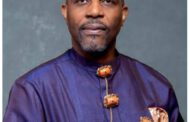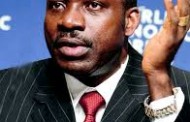The firestorm generated by Chukwuma Soludo’s well reasoned commentary on the place of issues in the 2015 electioneering campaign has somehow become the core of the campaign. What a way to come from outside and define agenda.
Of course I do not agree with all the points marshaled by the erstwhile CBN Governor and Patito’s Gang member, but not to commend his citizen duty of engagement or indicate as reprehensible the resort to ad hominen bashing of the former Economic Adviser instead of providing Facts to counter the views he had raised. That is issues based campaign.
I will myself raise logic to support and dispute some of the points in the Soludo intervention.
I do agree with Soludo that issues matter. I also think that those who turn to divisive emotion-laden typecasting of others rather than issues pertaining to the well being of the Nigerian people do a grave disservice not only to democracy but to the long term common Good of the people.
The Soludo thrust of criticism sounds like an attack on the statist perspective that intervention can generate jobs and economic growth. Even as one who likes to see government out of the way, I find the approach worrying because beyond the Keynesian logic that brought the ultimate capitalist state, the US, out of the Great Depression with initiatives like the Tennessee Valley Authority in Infrastructure, there is more recent example of post 2008 global financial crisis and the stimulus packages of the Obama Administration, and now Europe turning to Quantitative Easing, not to knock the wall street / Main street tag team approach to ensuring prosperity.
Soludo’s solutions sometimes sounded like Deepak Lal on the poverty of Development Economics. I think that if we see current oil price slum as an opportunity rather than a threat then we have to see a role for government in the way Lee Kuan Yew used state intervention when Singapore was prostrate in 1965, as Nigeria is today.
This leads to another point I am not in agreement with Soludo on. He talks about cost of programmes and the fact that low oil prices mean you cannot finance a big idea. In 1965 Singapore’s main revenues came from rent for the British Naval Base and the British had decided to shut all bases east of Eden. The decision of leaders of the United Malay, National Organisational (UMNO%2










